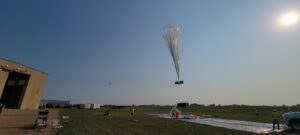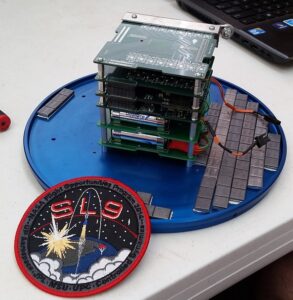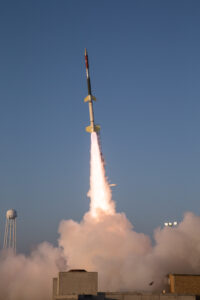
Proven Fault-Tolerant Computing for Your Next Small Satellite Mission
We develop ultra-reliable computer architectures that can withstand the harsh radiation environment of space by implementing patented recovery procedures on FPGA-based computers.
Find Out MoreRadiation Protection Made Easy
Detect
Automatically detects faults caused by single event effects (SEEs)
Recover
Redundant computing cores and patented recovery algorithms abstracted from the user allow developers to treat the RadPC SBC as a traditional embedded computer
Repair
FPGA implementation allows RadPC to use background partial reconfiguration to restore the computer to a healthy state
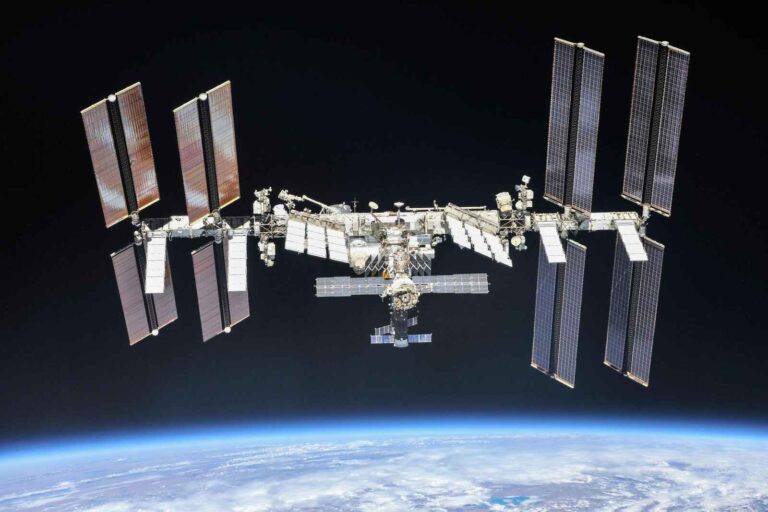
Our Proven Technology
Resilient Computing Unveils its First Commercial Offering of RadPC at 2024 SmallSat Conference
August 3-8th
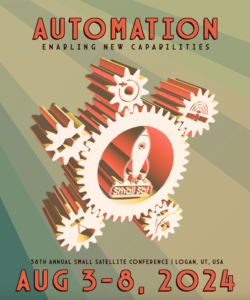 Come visit us at booth #168 at this year’s SmallSat Conference in Logan, Utah to find out about our newest technologies.
Come visit us at booth #168 at this year’s SmallSat Conference in Logan, Utah to find out about our newest technologies.
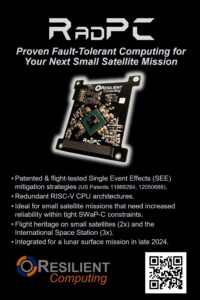
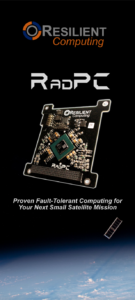
Resilient Computing Granted US Patent for its Space Computing Technology
April 23
Resilient’s fault-tolerant computer for reconfigurable hardware devices received a U.S. patent.
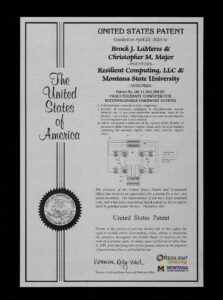
Resilient Computing Wins 2022 NASA SBIR Phase I and II Awards to Boost Space Computing Performance
May 23
NASA Funds Small Business to Advance Tech for Space, Earth
A new slate of funding from NASA will help small businesses develop technologies to advance space exploration, climate research, and more. In mid-April, NASA selected 112 proposals from 92 U.S. small businesses across 28 states to receive Phase II funding from the Small Business Innovation Research (SBIR) program, totaling approximately $98 million. Read more…


Resilient Computing Wins 2023 NASA SBIR Phase I and II Awards to Advance Architecture of its Space Computing Technology
April 22
NASA Nurtures Promising Tech Ideas from Small Businesses
New space technology ideas emerge every day from innovators across the country, and NASA’s Small Business Innovation Research (SBIR) program offers small businesses in the United States early-stage funding and support to advance the agency’s goals of exploring the unknown in air and space while returning benefits to Earth. Resilient Computing was one of 107 projects awarded funding. Read more…


RadPC Returns to Space Station to Test Computation Under Stress
February 12
Montana State doctoral student receives two payloads from International Space Station
Montana State University doctoral student Hezekiah Austin recently received two packages with a unique return address: that of the International Space Station. Read more…
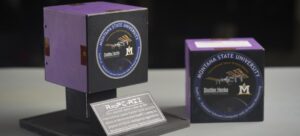
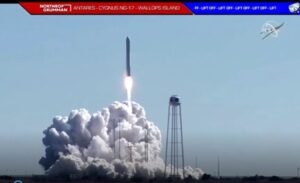
Resilient Computing Wins 2021 NASA Entrepreneurs’ Challege for its Efforts to bring Space Computing Tech to Market
November 12
NASA Awards Challenge Prizes to Startup Companies
NASA has awarded $90,000 each to seven entrepreneurial startup companies under its Entrepreneur’s Challenge program. The awards will advance new technology concepts ranging from novel materials with properties not found in nature to innovative technologies that will enable small satellite (SmallSat) science missions.


Resilient Computing wins First NASA SBIR Phase I Award to Bring RadPC to Market
November 12
NASA Awards Challenge Prizes to Startup Companies
NASA has awarded $90,000 each to seven entrepreneurial startup companies under its Entrepreneur’s Challenge program. The awards will advance new technology concepts ranging from novel materials with properties not found in nature to innovative technologies that will enable small satellite (SmallSat) science missions. Read more…
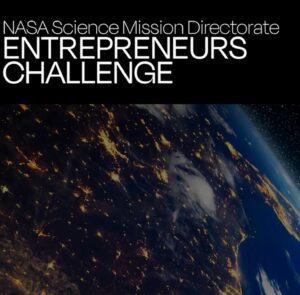
RadPC Selected for Lunar Surface Demonstration
July 1
NASA Selects 12 New Lunar Science, Technology Investigations
NASA has selected 12 new science and technology payloads that will help us study the Moon and explore more of its surface as part of the agency’s Commercial Lunar Payload Services program. These investigations and demonstrations will help the agency send astronauts to the Moon as a way to prepare to send humans to Mars for the first time. Read more…
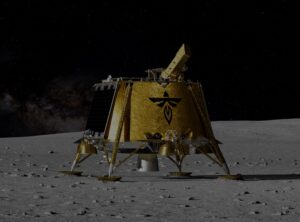
RadPC Gains More Flight Heritage on 2nd CubeSat Mission
November 15
MSU computer technology once again visits space station
A technology developed at Montana State University to improve how spacecraft computers cope with disruptive cosmic radiation has once again traveled to the International Space Station for testing. Read more…
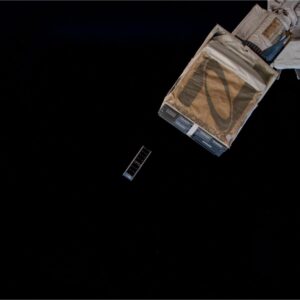
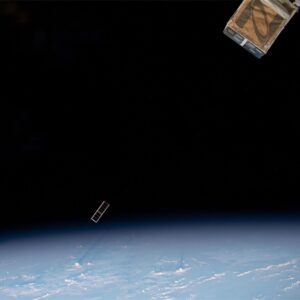
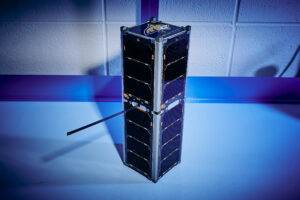
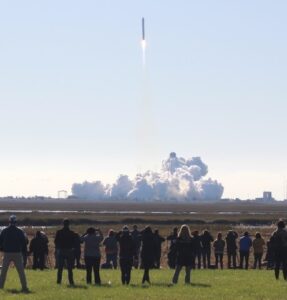
RadPC’s Fault Mitigation Strategies Demonstrated on CubeSat Mission
May 25
Rocket sends MSU computer technology to space station
A decade-long Montana State University project to develop a new kind of spacecraft computer entered a new chapter earlier this week with the dramatic launch of a rocket bound for the International Space Station. Read more…
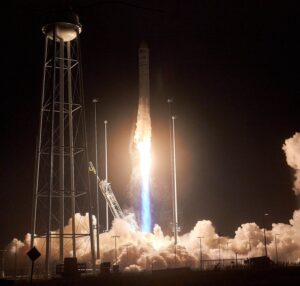
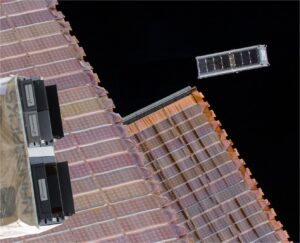
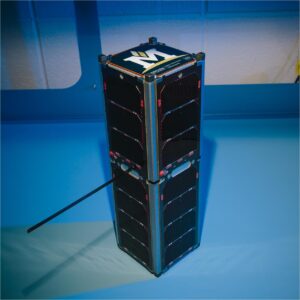
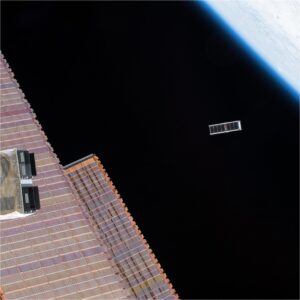
Testing on International Space Station Helps Advance RadPC
January 17
MSU researchers test computer technology on International Space Station
As of Dec. 14, the International Space Station has a new visitor: a Rubik’s Cube-sized computer prototype, designed by Montana State University researchers to demonstrate an improved method for coping with the radiation of outer space. Read more…
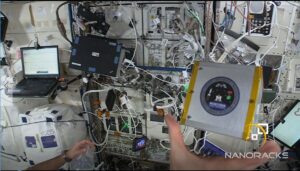
Suborbital Testing puts Resilient Computing technology through its Paces
October 18
Suborbital Testing Puts Moon-Bound Computing System Through its Paces
On July 28 and September 22, 2021, researchers from Montana State University (MSU) launched a radiation-tolerant computing system called RadPC on a high-altitude balloon in Sioux Falls, South Dakota from Raven Aerostar. Over the course of the two flights the balloon reached altitudes up to 75,000 feet and provided a total of over 80 hours of flight time, enabling researchers to test the computing technology against more than 3,000 injected system faults; the RadPC recovered from all of them successfully. Read more…

